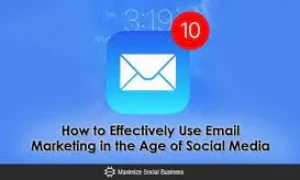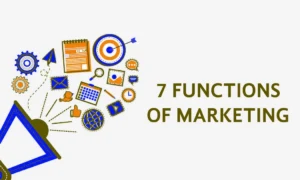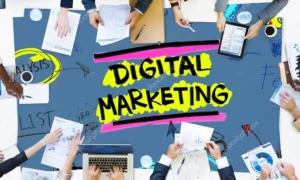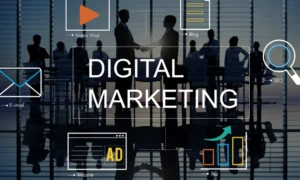In the ever-evolving realm of digital marketing, staying ahead of the curve is essential for success. With consumers becoming more discerning and technology continuously advancing, businesses are constantly seeking innovative ways to connect with their target audiences. Enter Artificial Intelligence (AI), a game-changing technology that is revolutionizing the landscape of digital marketing. In this article, we’ll explore the pivotal role that AI plays in transforming digital marketing strategies and campaigns.
Understanding AI in Digital Marketing
Artificial Intelligence refers to the simulation of human intelligence processes by machines, particularly computer systems. AI systems are capable of performing tasks that typically require human intelligence, such as learning, reasoning, problem-solving, and decision-making. In the context of digital marketing, AI is harnessed to automate and optimize various processes, providing marketers with invaluable insights and tools to enhance their strategies.
1. Data Analysis and Insights
One of the most significant contributions of AI to digital marketing is its ability to process and analyze vast amounts of data quickly and accurately. AI-powered algorithms can sift through mountains of customer data, website analytics, and social media interactions to identify patterns, trends, and opportunities that would be impossible for humans to discern manually.
By crunching these numbers, AI can offer profound insights into consumer behavior, preferences, and purchasing patterns. This data-driven approach allows marketers to make informed decisions and tailor their strategies for maximum impact.
2. Personalization at Scale
Personalization has become a cornerstone of effective digital marketing. Customers expect tailored experiences that resonate with their interests and needs. AI plays a pivotal role in achieving this level of personalization at scale.
AI algorithms can analyze user behavior, past interactions, and preferences to deliver customized content, product recommendations, and marketing messages. This not only enhances the user experience but also increases the likelihood of conversions and customer loyalty.
3. Chatbots and Customer Service
AI-powered chatbots have transformed customer service in the digital age. These virtual assistants can handle customer inquiries, provide support, and even process transactions 24/7, improving response times and overall customer satisfaction.
Chatbots use natural language processing (NLP) to understand and respond to user queries in real-time, providing immediate assistance and information. They are a cost-effective way to enhance customer engagement and streamline the buyer’s journey.
4. Predictive Analytics
Predictive analytics, fueled by AI, enables marketers to foresee future trends and behaviors based on historical data. This invaluable tool allows businesses to anticipate customer needs, optimize pricing strategies, and make data-driven decisions to stay ahead of the competition.
For instance, predictive analytics can help retailers determine which products are likely to be in demand during specific seasons, allowing them to plan their inventory and marketing campaigns accordingly.
5. Content Creation and Curation
AI has also made inroads into content creation and curation. While it may not replace human creativity, AI can assist in generating content ideas, optimizing headlines, and even drafting articles and reports. This automation frees up marketers to focus on more strategic tasks while ensuring that content remains fresh and relevant.
6. Ad Targeting and Optimization
AI-powered algorithms have transformed online advertising by enabling precise ad targeting and real-time optimization. Machine learning algorithms analyze user data and behavior to serve ads to individuals who are most likely to engage with them.
Additionally, AI can continually adjust ad campaigns based on performance, reallocating budget to the most effective channels and ad creatives to maximize return on investment (ROI).
7. Voice Search and SEO
With the rise of voice-activated virtual assistants like Siri and Alexa, AI has also impacted the field of search engine optimization (SEO). Marketers now need to consider voice search optimization as a crucial part of their strategy. AI-driven tools help identify voice search trends and adapt content accordingly.
Conclusion
AI is not just a buzzword; it’s a transformative force that’s reshaping the digital marketing landscape. Its ability to analyze data, personalize experiences, streamline processes, and improve decision-making is revolutionizing how businesses connect with their audiences. Embracing AI in your digital marketing strategy is no longer a choice; it’s a necessity to remain competitive and relevant in the digital age. As AI technology continues to advance, its role in shaping the future of digital marketing will only become more significant, offering new possibilities and opportunities for marketers to explore.




























